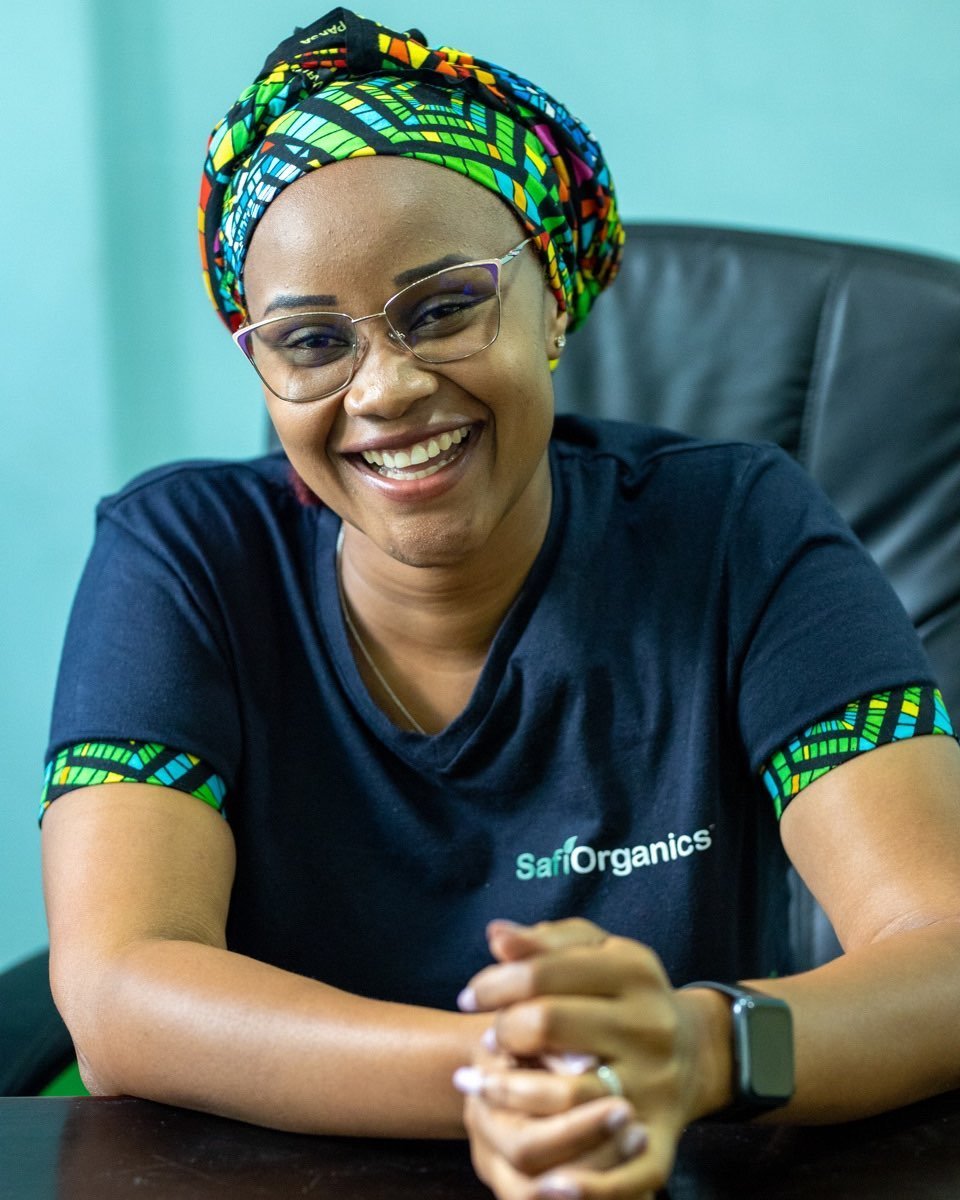Growing up in semi-arid central Kenya, Joyce Kamande witnessed firsthand the devastating effects of food scarcity. This stark reality ignited a burning desire within her to make a difference. After graduating from university, Kamande joined forces with a friend to research waste management. This experience sparked Kamande’s passion for eco-friendly farming methods, leading her to co-found Safi Organics in 2015.
The company uses technology to create localised, organic fertiliser, decentralising production and making it feasible for rural villages to produce fertiliser using local resources, labour, and waste. Their patent-pending technology, validated by MIT, uses oxygen-lean torrefaction (heat) to break down organic waste. This innovation has transformed fertiliser production in Kenya.
Agriculture is the backbone of Kenya’s economy, contributing approximately 33% to the country’s Gross Domestic Product (GDP) and employing over 40% of the total population and 70% of the rural population. However, agricultural productivity has stagnated in recent years, causing food insecurity. By eliminating long-distance transportation costs, Safi Organics offers farmers higher-quality products at a lower price. Their fertiliser, Safi Sarvi, is carbon-negative, improves yields by 30%, and can be tailored to local soil types and crop requirements.
Farmers who have used Safi Organics’ fertiliser have seen remarkable harvest improvements. Jepkering Singoei, a busy farmer from Kipchamo Farm in Eldoret, initially had reservations about organic fertiliser. However, after witnessing its benefits, she became a strong supporter. Her experience echoes the struggles many farmers face.
“When I was young, farming was good… The harvests were bountiful, and pests were never seen on the farm. Over time, the farm became polluted with the use of synthetic fertiliser, with harvest yields decreasing year over year,” Singoei recounts.
More farmers are beginning to tell the benefits of organic fertilisers. Esther Wakera Karani, a seasoned farmer from Karani’s Farm in Embu, shares a similar story. After switching to Safi Organics’ fertiliser, she saw a significant turnaround. Her profits have increased by 55%, enabling her to hire three new employees.
“The quality and quantity of my crops have grown… Organic fertiliser is also more affordable,” she says.
Kamande’s invention has created direct employment for over 50 rural youths and supplies fertilisers to over 35,000 farmers across Kenya. One farmer, Mr. Kibuchi, saw his yields increase by 50% after using Safi’s product.
Safi Organics aims to impact 100 million farmers across the continent. By leveraging technology and localised production, the company reduces energy costs, retains moisture and nutrients in the soil, and promotes environmentally conscious agriculture practices.
Over 15,000 farmers have benefited from its solutions, with significant increases in yields and livelihood improvements. The company’s impact extends beyond individual farmers. It has rejuvenated over 7,000 acres of land. With plans to reach 4 million smallholder farmers, Safi Organics hopes to drive significant growth.
Kenya’s agriculture sector faces numerous challenges, including climate change and limited access to finance. However, Safi Organics is leveraging technology to overcome these challenges, democratising fertiliser production, reducing logistical costs, and guaranteeing high-quality products.
As the business expands, its potential to improve food security and economic growth is immense. With Safi Organics at the forefront, Kenya’s agriculture sector is poised for revolutionary change.



